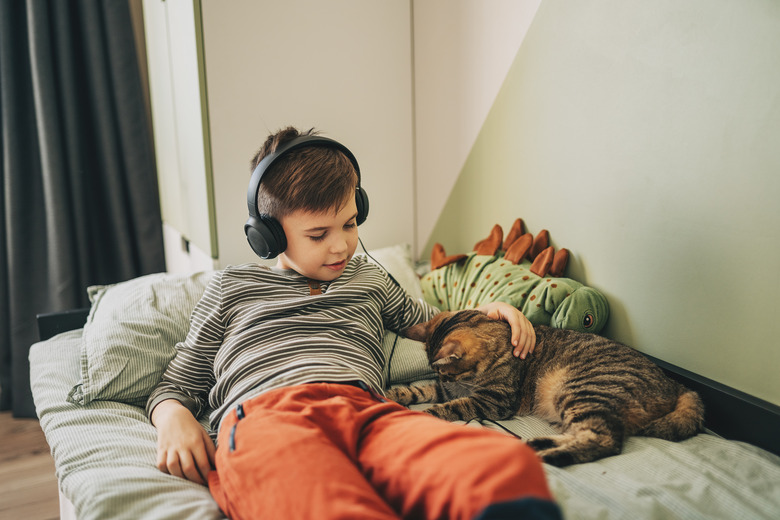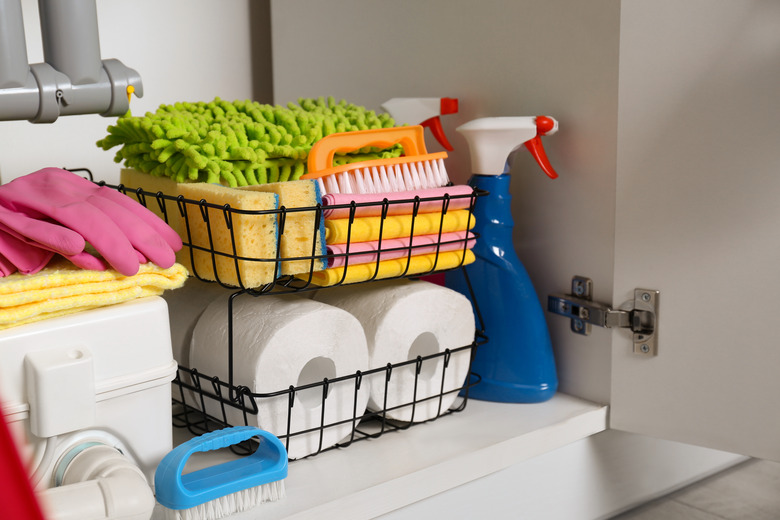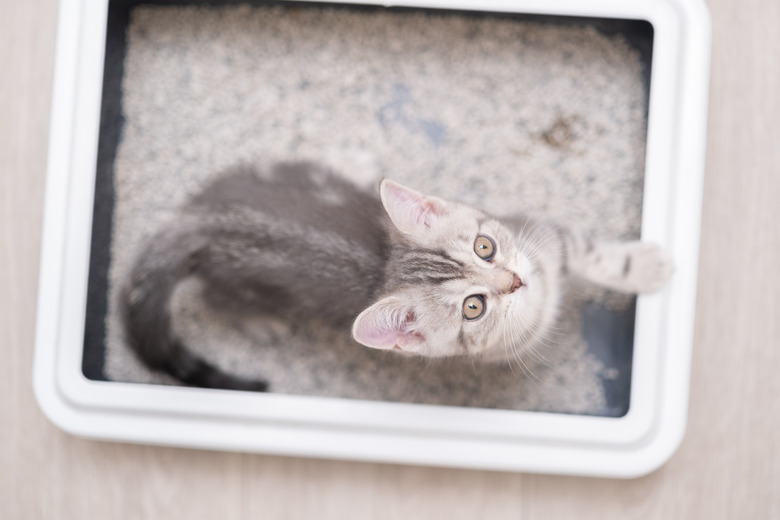What To Do If Your Cat Drinks Bleach
There is no pet-safe bleach. Bleach's corrosive action can cause severe burns to a cat's esophagus and gastrointestinal tract, making it necessary to act quickly if your cat has ingested it. While most cats are put off by the smell of bleach and bleach fumes, they won't hesitate to lick it off their fur or paws if they come in contact with it. If your cat licks or ingests bleach, take prompt action to prevent further injury by getting your cat to the veterinarian immediately for proper treatment.
What to do when a cat drinks bleach
What to do when a cat drinks bleach
If your cat drinks or licks bleach or water with bleach in it, there are some things you can do just before you leave for the veterinarian's office. However, there are also a few things you should not do.
Do not induce vomiting or attempt to flush your cat's stomach, as the corrosive passing through your cat's esophagus again is likely to cause additional damage. Don't try to neutralize the bleach's acid with an antacid, as the resulting reaction produces heat that can cause further burning to your cat's tender membranes.
Call your veterinarian immediately
If your cat consumes any type of bleach, even diluted bleach or non-chlorine bleach, call your veterinarian or animal poison control immediately. Prompt attention is necessary to prevent bleach's corrosive action from causing chemical burns that set up inflammation, swelling, or other conditions that can be fatal.
Because prompt action is necessary, your veterinarian will ask you questions to determine if it is bleach that is swallowed or some other substance causing toxicity. They will then walk you through administering first aid to your cat.
Check for signs of ingested bleach
Determine if your cat has ingested bleach by sniffing near their mouth. You can do this while holding for your veterinarian. Look for discolored white or yellowish spots on their fur and sniff them to see if there is a bleach smell.
Symptoms of bleach poisoning in cats include any of the following:
- Lethargy
- Vomiting
- Drooling
- Mouth ulceration
- Loss of appetite
- Diarrhea
Cats rarely drink a large amount of bleach or enough household bleach to poison themselves. However, cats are more likely to ingest toxic amounts of cleaning products like bleach through fur grooming after incidental contact.
Remove access to bleach or disinfectant
Remove the hazard from your cat's reach. Make sure your cat can't get into any more bleach while you're on the phone with the veterinarian. If your cat drank water with bleach in it, such as from a toilet tank or a bowl of bleach solution for cleaning, remove the cat from the area or place the bleach where the cat cannot access it.
If your cat has bleach on their fur, rinse the area with clear water and wipe them with a cloth to remove as much bleach as possible. It's a good idea to wear leather gloves and long sleeves while rinsing your cat to avoid being clawed if they are not used to getting a bath. If there is a second person available at the scene, have them call the veterinarian while you are rinsing your cat and giving them water.
Dilute the bleach concentration
Attempt to dilute the bleach in your cat's system. Your veterinarian might advise first aid to stop the corrosive action immediately. This can include rinsing your cat's mouth with water to remove as much bleach as possible from their oral membranes. The advising DVM might also suggest offering a bowl of water or milk to your cat.
While milk might cause digestive upset in lactose-intolerant cats, the milk will soothe membranes irritated by the bleach. If you know your cat is lactose-intolerant, let your veterinarian know; they might suggest trying water first to dilute the corrosive action of the bleach.
Get veterinary assistance immediately
Take your cat to the veterinarian. Removing the hazard and giving the cat an opportunity to dilute the bleach's corrosive action with water or milk should be done at once, but these are not substitutes for proper veterinary care.
Your veterinarian will examine your cat for lesions and other irritation to the gastrointestinal tract and watch your cat for signs of fluid in the lungs — a common side effect of bleach ingestion — for 12 to 24 hours. The veterinarian will likely administer intravenous fluids and treat corrosive burns that could become inflamed and cause respiratory distress.
Is it safe to clean a cat's litter box with bleach?
Is it safe to clean a cat's litter box with bleach?
No, it isn't safe to clean a cat's litter box with bleach. Many people use bleach water to clean out a cat's litter box, but this is not recommended. When ammonia in cat urine mixes with the sodium hypochlorite in bleach, it can form a toxic gas. Therefore, if you must use bleach water, first use soapy water with no bleach to remove urine and urine stains before using any other cleaning products.
The bottom line
The bottom line
If your cat consumes bleach, likely from the toilet or from a cleaning bowl filled with bleach water, contact your veterinarian or animal poison control immediately. Give your cat milk or milk diluted with water but do NOT attempt to induce vomiting or give them other medications, including human antacid. Take your cat to the emergency veterinarian immediately because bleach is highly corrosive and will damage your pet's health.


